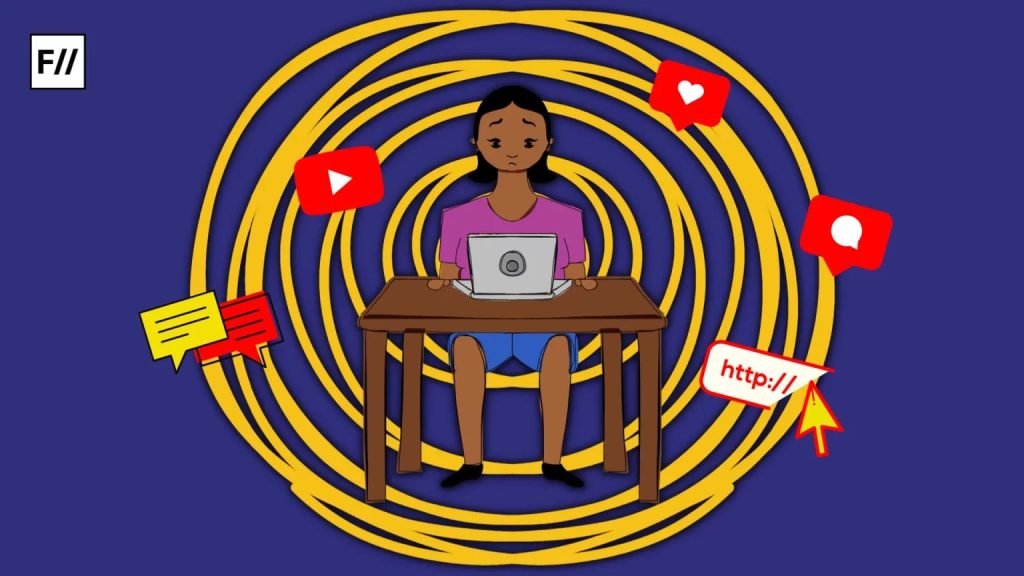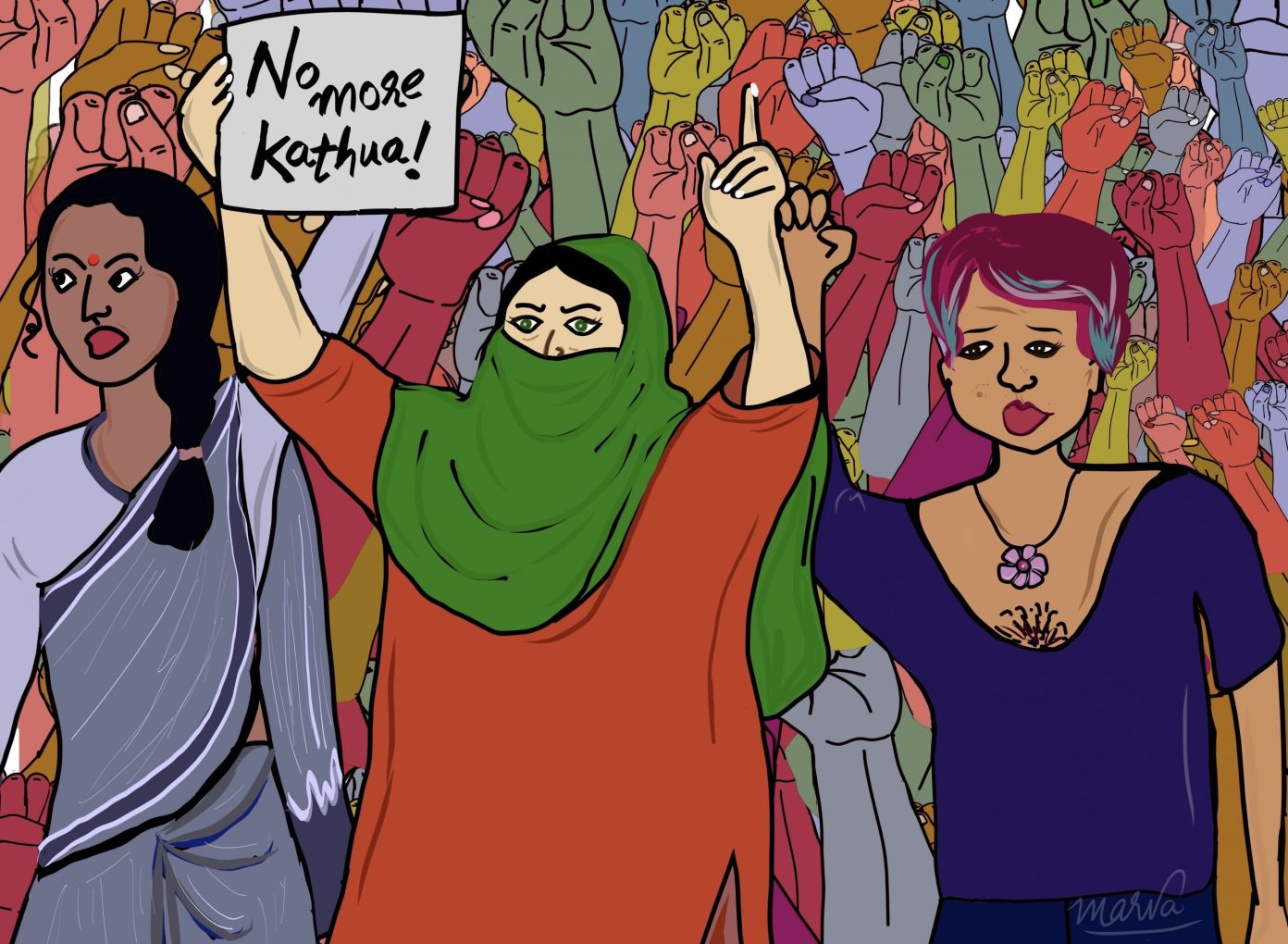Once upon a time, the internet encouraged and supported women to ‘open up’, to share emotions, to be vulnerable and to process their past with a wider audience. It began as a culture of sharing vulnerability and has now accelerated into an uncomfortable area for women. Today, when a woman goes online to share about her childhood trauma or a bad relationship or work stress or anything personal and stressful, someone readily accuses her of ‘trauma dumping’. A term that was only used in the mental health sector is now being used lightly and as an everyday word on social media, from comments to memes to reels. However, the casual usage of the term ‘trauma dump’ is a revelation about how the internet lacks empathy when a woman expresses emotion. Apparently, it is not a new problem because it is just a new term for a century-old societal habit of suppressing women’s vulnerability and labelling their feelings as a ‘burden’.
Trauma dumping: casual usage of clinical terms
In a reported case earlier this year, when a woman reached out to a friend for emotional support, she was met with an accusation of ‘trauma dumping’. She shared screenshots online where she messaged her friend, sharing how she lost her grandma and had spent her birthday alone, asking if they could hang out later. Instead of empathy, her friend treated her harshly and told her that she was ‘guilt-tripping’ her and called her texts emotional manipulation and said, “Please don’t trauma dump in someone’s DM without consent,” and also declined to hang out with her. This exchange was a hot topic of debate online about how mental health terms are just casually thrown into day-to-day conversations. Several called out the friend as emotionally immature and lacking empathy and added that there’s a significant difference between seeking emotional support and ‘dumping’ trauma.
A term that was only used in the mental health sector is now being used lightly and as an everyday word on social media, from comments to memes to reels. However, the casual usage of the term ‘trauma dump’ is a revelation about how the internet lacks empathy when a woman expresses emotion.
It’s no surprise that in today’s world, there’s an explosion of using psychological terms on social media, such as gaslighting, triggers, love bombing, OCD, ADHD, stonewalling, etc. These words have helped people to be more articulate about their state of mental health; however, they have also encouraged the misuse of these clinical words. The term ‘trauma dumping’, in a clinical setting, is known as overwhelming disclosure without taking any consent. But we are all aware of how the internet handles consent, right? There’s no seeking for it. People can still choose to ignore, mute or unfollow people who are being ‘too much’ vulnerable on the internet. But they choose to comment and react to the emotional content, saying that it makes them feel uncomfortable and that there’s an invasion of privacy. When certain clinical terms lose their actual meanings and context, they become a mode to shame and dismiss vulnerable feelings instead of having a positive impact. It is dangerous for women, who are already taught not to share their feelings in public, and the moment they share, the internet attacks them as if that’s an emotional threat.

According to studies, women mostly share emotional and expressive content online, but that doesn’t mean they are ‘oversharers’; instead, they are only a reflection of the society that expects women to hide their feelings and receive backlash when they do otherwise. Social media like TikTok has normalised storytelling, especially intimate and vulnerable, but these platforms also treat certain stories as ‘a trauma dump’ to shut down any type of conversations before they even begin.
Emotional posts dismissed as trauma dumping
A study published in the Journal of Computer-Mediated Communication reveals that under emotional or stressful pressure, women tend to become more willing to share their vulnerable feelings without taking into consideration their privacy. But this is not oversharing; this is what mental health experts have called a stress response, where one considers sharing over caution. It was observed that during the pandemic, social media became an online diary for several people significantly. However, women’s negative and vulnerable posts on social media were received very blatantly, and men didn’t even experience an ounce of it. When a woman expresses deep, vulnerable feelings online, consciously or subconsciously, people either withdraw or judge them or drop ‘stop trauma dumping’. Women have always used expressive language without adhering to any temperament, and these expressions are often construed as drama or dumped online, reflecting the cultural and gendered bias in the patriarchal society.
The trolling of showcasing grief online
In August 2025, when actor Rashmika Mandanna shared her vulnerability online, it was instantly dismissed and labelled as ‘attention-seeking’ or a ‘PR strategy’. Actor Ananya Panday also revealed that the trolling on social media was so intense around her mental health challenges that she sought therapy and decided not to speak about her struggles online. The internet judges when you show emotion and even when you don’t — harshly. When actor Ishitta Arun didn’t showcase grief at a funeral and was seen smiling, the internet accused her of being nonchalant, and she responded, saying, ‘We don’t stage grief.’ Celebrities like Selena Gomez have been told by people to ‘stop trauma dumping’, reflecting that women’s emotional struggles should always be hidden. The policing of content and tone across the world showcases how women’s vulnerable and honest emotions are referred to as ‘melodrama’.
The fear of being labelled
The discomfort and dismissal around vulnerable emotions of women is not new and is more layered than before. Today, young women prefer being anonymous on social media when sharing any traumatic events such as depression, relationship struggles or assault because of the fear that they will be labelled as ‘dramatic’, ‘attention-seekers’ or ‘problematic’ online and in their inner circles. The patriarchal society’s conditions, such as ‘don’t share your family matters with strangers’, ‘have control over your emotions’, and ‘don’t be so dramatic’, are often imposed on women, which has simply mutated to the digital world’s lingo, like ‘don’t trauma dump’. This digital patriarchy is the replication of our society that wants to silence women at any cost. Because of this, there has been an immense increase in reports of women having anxiety issues for being judged for sharing emotionally heavy stuff online. Many women add a trigger warning or a preface to their posts, such as ‘Sorry if this feels like trauma dumping’ or ‘I hope I am not being too much.’ The self-policing of one’s emotions showcases how deeply the stigma is rooted in a woman’s mind.
The rise of using words like ‘trauma dumping’ is a revelation of a deeper societal issue, i.e., people don’t know how to handle others’ distress or even their own. What began as a clinical term has become a cultural weapon, and like several other forms of moral policing, this also lands hardest on women who have been told for centuries that their feelings are too much. An honest attempt to have an emotional bond in a world that seems far and disconnected is now being reframed and called dumping. Maybe the issue is not women being too much, but how society has forgotten to be empathetic. According to clinical studies, unprocessed trauma often triggers a person’s own history, and without any emotional expression, the pent-up trauma can backfire. Women are asking to be heard, not to be scrutinised. If anything needs to change, then it is how our society listens and not how to suppress one’s emotions. Empathy should be an instinctive choice, and if that’s not happening, then grief and pain will continue to be an inconvenience – online and offline.





